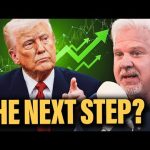Kevin O’Leary, the ever-animated star of “Shark Tank,” has stepped into the ring as one of the fiercest defenders of the Trump administration’s approach to tackling China’s trade malfeasance. O’Leary argues that America must take a firm stand against Chinese cheating and intellectual property theft, which he claims is a death knell for both small and large businesses here at home. It appears that he is not one to sugarcoat the need for a more aggressive tariff strategy, making a compelling case for squeezing the Chinese regime until they relent.
During a recent appearance on MSNBC — a platform known for its questionable grasp on capitalist fundamentals — O’Leary raised eyebrows and the blood pressure of many with his blunt remarks about tariffs. When called out for his apparent disregard for market volatility by host José Díaz-Balart, O’Leary remained steadfast, insisting that the stakes are too high and that the time to act is now. O’Leary presented a stark choice, suggesting that the alternative to putting pressure on China could lead to upheaval and unrest within the communist regime, which might just be a welcome outcome for anyone who values freedom.
In his fiery monologue, O’Leary drew an amusing — and frankly, rather alarming — analogy to villagers with torches storming the castle straight out of a classic horror flick, warning of the potential consequences if Xi Jinping’s grip on power weakens due to economic fallout. He doesn’t shy away from painting a picture of thousands of job losses in China leading to chaos, expressing a belief that pressure from the U.S. could shake things up on the other side of the Pacific.
O'Leary Schools MSNBC Host on Why the Pressure Campaign Against China Must Continue https://t.co/Yw5pjVMP74
— European American 🇺🇸 ✝️ (@Veritas86511) April 11, 2025
Emphasizing the magnitude of tariffs, O’Leary suggested that an increase to 400 percent might be exactly what the doctor ordered to get Xi on a plane to Washington, ready to negotiate. In what can only be described as a call to arms for American businesses stifled by the unfair practices of the Chinese government, he recognizes the glaring lack of decisive action from previous administrations. In his opinion, the time has finally come for someone to tell Beijing that enough is enough.
Negotiating from a position of strength is the name of the game, and O’Leary certainly believes that’s what the Trump administration is attempting to do. On the heels of an announcement from China about increasing tariffs on American goods to 125 percent, O’Leary’s commentary highlights the tense back-and-forth that is likely to characterize future trade relations. In a landscape where previous administrations simply accepted Chinese predation, the idea that a hefty tariff could finally tip the scales in favor of American businesses is more refreshing than a cold brew on a hot summer day.




